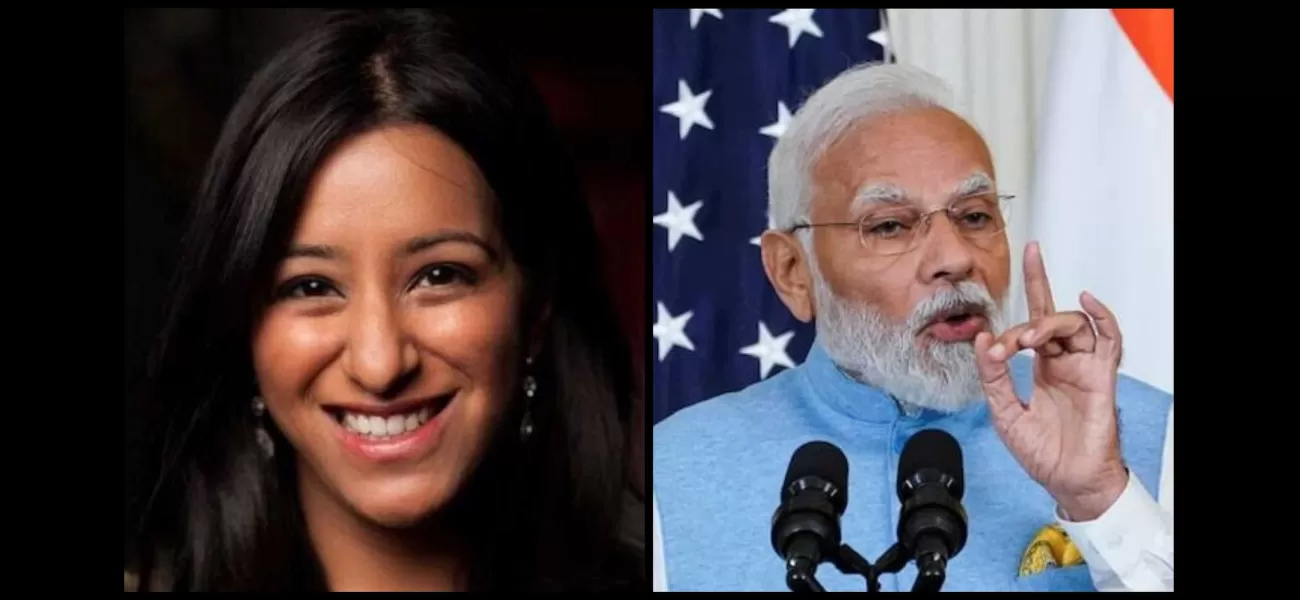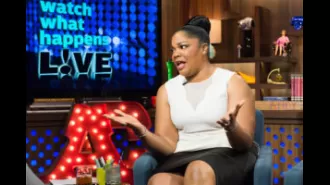Sabrina Siddiqui is a WSJ journalist who asked PM Modi tough questions about Indian democracy.
June 23rd 2023.

On June 22nd, a rare event transpired at the White House as Prime Minister Narendra Modi of India took a question from a journalist for the first time. The inquiry came from Sabrina Siddiqui of The Wall Street Journal, who asked about the measures taken by the Indian government to guarantee minority rights, particularly for Muslims, and uphold free expression.
In response, PM Modi vehemently defended India's record in democracy and emphasized the fundamental principles of his administration, which he called “Sabka Saath, Sabka Vikas, Sabka Vishwas, and Sabka Prayas”. These principles signify a collective effort to promote inclusive growth and trust among all citizens. "We are a democracy...India & America both have democracy in our DNA. Democracy is in our spirit & we live it and it's written in our Constitution...So no question of discrimination on the grounds of caste, creed or religion arises. That is why, India believes in sabka saath, sabka vikas, sabka vishwas, sabka prayaas and walks ahead with it. These are our foundation principles, which are the basis of how we operate and how we live our lives in India. The benefits that are provided by the government are accessible to all whoever deserves those benefits is available to everybody," PM Modi said.
The journalist, Sabrina Siddiqui, is an esteemed Muslim American in the field. She holds a degree from Northwestern University and has been covering the White House for The Wall Street Journal since 2019. Siddiqui previously reported on the Obama administration and Congress during her time at The Huffington Post, as well as the 2016 presidential election at The Guardian. Her father was born in India, but grew up in Pakistan, while her mother hails from Pakistan.
PM Modi's response to the question about minority rights and free speech demonstrated his commitment to democracy. He rejected the notion of discrimination and highlighted the importance of access to government resources for all citizens, regardless of their background. His remarks reflected India's values of collective effort, trust, and inclusive growth, which are essential for a just and equitable society.
In response, PM Modi vehemently defended India's record in democracy and emphasized the fundamental principles of his administration, which he called “Sabka Saath, Sabka Vikas, Sabka Vishwas, and Sabka Prayas”. These principles signify a collective effort to promote inclusive growth and trust among all citizens. "We are a democracy...India & America both have democracy in our DNA. Democracy is in our spirit & we live it and it's written in our Constitution...So no question of discrimination on the grounds of caste, creed or religion arises. That is why, India believes in sabka saath, sabka vikas, sabka vishwas, sabka prayaas and walks ahead with it. These are our foundation principles, which are the basis of how we operate and how we live our lives in India. The benefits that are provided by the government are accessible to all whoever deserves those benefits is available to everybody," PM Modi said.
The journalist, Sabrina Siddiqui, is an esteemed Muslim American in the field. She holds a degree from Northwestern University and has been covering the White House for The Wall Street Journal since 2019. Siddiqui previously reported on the Obama administration and Congress during her time at The Huffington Post, as well as the 2016 presidential election at The Guardian. Her father was born in India, but grew up in Pakistan, while her mother hails from Pakistan.
PM Modi's response to the question about minority rights and free speech demonstrated his commitment to democracy. He rejected the notion of discrimination and highlighted the importance of access to government resources for all citizens, regardless of their background. His remarks reflected India's values of collective effort, trust, and inclusive growth, which are essential for a just and equitable society.
[This article has been trending online recently and has been generated with AI. Your feed is customized.]
[Generative AI is experimental.]
0
0
Submit Comment





